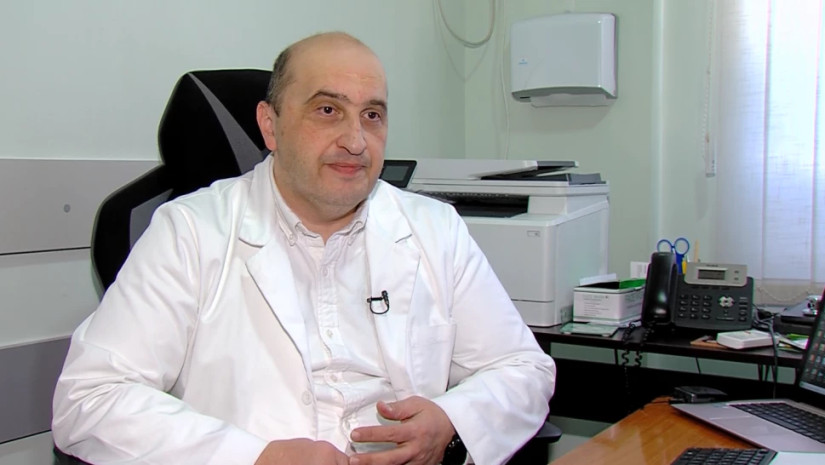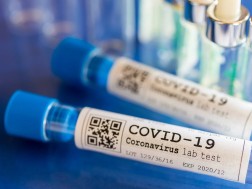Omicron Covid-19 variant spreads more actively around the country. Information about the new strain is mostly based on foreign sources. Does a rapid test detect "Omicron"? Is it possible to re-infect with Omicron if a person has recovered from Delta variant? Will “Omicron" end the pandemic? Bm.ge asked these questions to Giorgi Kamkamidze, allergist-immunologist and director of the clinic Neolab.
- What are the general symptoms of "Omicron" variant?
- Omicron, a new variant of the coronavirus, does not have the specific symptoms that old variants of the virus had, including change of smell and taste. It runs relatively lightly. Omicron is like “a normal flu-like illness": which is characterized with a temperature, sore throat, nausea, and in some cases, gastrointestinal syndromes with diarrhea. According to these symptoms, "Omicron" is not distinguished from ordinary flu.
- How is it detected whether the patient is infected with "Omicron" or "Delta"?
- There is a so-called Molecular-epidemiological study and it determines; which variant of the virus dominates in the country. Conducting such an examination is not really cost-effective for each person. There is also a sequencing of optional samples to determine the percentage of the new version of the virus. This rate now stands at over 60% and the more cases we have in the coming days, the higher the percentage will increase. Consequently, the dominant version seems to be "Omicron".
- Do the rapid antigen tests detect Omicron?
- The sensitivity of antigen tests is decreasing gradually, and this was already observed in the case of the "Delta" variant. Therefore, in any case when antigen test is negative but the patient is symptomatic, the check is done by PCR test. In general, my personal recommendation is that screening tests should no longer be based on an antigen test, as it can no longer withstand any criticism in terms of its sensitivity and the focus should be on molecular tests aimed at detecting several genes. At this stage, PCR still remains the standard to be used.
- Is it possible to re-infect a person with Omicron, if he has recovered from Delta version?
- After recovery from Delta variant, a person as natural immunity for an average of 6 months. However, there are already cases when re-inflation is made earlier. The term can be reduced to a one-month period between two infections. However, such cases of reinfection are quite rare. Therefore, we can hope that natural immunity will protect us. There is much stronger protection if a person is vaccinated, as well as recovered from COVID-19.
- How much does the vaccination protect against Omicron?
- Pfizer is characterized by the highest protection ability, however, in terms of "Omicron", it came down to 30%, which is really low. Below 50% it is considered that the vaccine no longer protects. However, in terms of the spread of the epidemic, vaccination still remains a significant source of protection - from hospitalization and severe cases, as well as death. In such cases, the protection rate stands at 70-75%. Consequently, double vaccination is still very important. The protection rate rises to 75% in the case of "booster". Protection is higher - 80-90%, if a person has recovered from COVID-19 and got COVID-jab as well, especially during the first 6 months after infection. To date, such a population is most protected from the new variant.
-What is "Deltacron"?
- This is a really mixed variant of the virus itself and needs further in-depth studies. It has genes that are derived from Delta and Omicron. This is a combined option. How viable and highly contagious this new option will be, if we are just talking about a variant that will not spread in masse, the coming weeks will show. Supposedly, it will be weaker than Omicron.
-Will "Omicron" end the pandemic?
-We cannot say that now, but there is a feeling in both scientific circles and the population that this will turn into a common flu-like disease. The virus will not disappear. The end of the pandemic does not mean that we expect the "omicron" to disappear, it just does not have such a pandemic character. The pandemic will be over, but we will have to manage it with vaccinations and medicines. Flu-like respiratory diseases will be added by the coronavirus as a widespread virus. There is no doubt that the virus will continue to spread in the future, but there will not be a high mortality toll in the world. In this regard, of course, we expect the pandemic will end in 2022, but this does not mean that we will stop fighting the coronavirus.
















